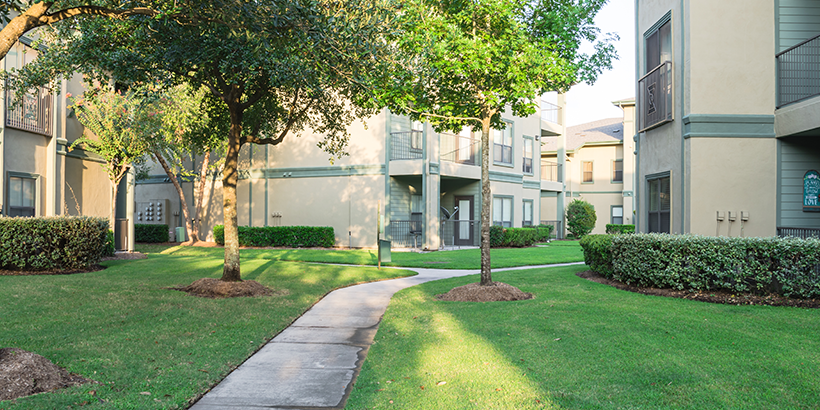If you’re in the market for a new apartment, it is a good idea to start by determining how much money you can afford to spend on housing based on your salary and other routine expenses.

In general, you should spend no more than 30% of your take-home income (your paycheck after taxes are taken out) on housing-related expenses. To calculate your monthly housing costs, you can use our budget worksheet.
Everyone’s financial situation is unique. That’s why it’s important to consider how upfront and recurring costs associated with your new apartment factor into your monthly budget.
Upfront Costs
Upfront costs typically occur at the start of the rental process. These commonly include:
- Application fees.
- Security and pet deposits.
- Moving costs.
Researching these costs ahead of time can help you understand how much you’ll need to initially spend just to get into an apartment, as well as give you time to set aside additional money if necessary.
Recurring Costs
Recurring costs occur at regular intervals and are important to consider because they can add up quickly. To understand how these costs factor into your monthly housing expenses, you should start by tallying up any utility, amenity or pet fees you already pay at your current apartment.
Then, ask yourself some additional questions:
- Do you currently pay for your utilities or are some of them included in your rent?
- Do you pay for a reserved parking spot where you currently live? Could you live without one?
- Amenity offerings and fees may vary building to building. Are you willing to sacrifice on your wants for a lower fee, if possible?
- Do you have a pet, or will you look to add one in the future? Some buildings charge a one-time deposit, while others add a monthly fee on top of that.
- Do you pay for renters insurance? Some property managers will require you to have renters insurance.
Accounting for upfront and recurring costs at the start of your new apartment search will allow you to establish a comfortable baseline for what to spend on housing.
Additionally, although you may find new tenant discounts in many communities, it’s important to budget for the long term. This means planning for potential annual rent increases and other fees.
Last reviewed: January 15, 2026
My Home in your inbox
Sign up to receive resources, tools and tips about buying, owning, refinancing, selling and renting a home in your inbox.